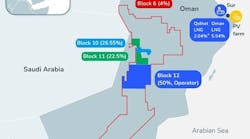TOKYO�Japan's Ministry of International Trade and Industry (MITI) may require electric utilities to buy a certain portion of their electric power from generators that use wind or solar sources, a ministry source told OGJ Online. The move would be part of a plan to promote clean fuel sources in electric generation.
"We are currently drawing up a report that will include a number of recommendations aimed at overhauling Japan's energy policy to make it more environmentally friendly but without making it market-unfriendly," the source said.
A strong dedication to a clean environment already limits coal use in Japan to 14.2% of total primary energy supply, compared with the rest of the world, where the average share of coal in total energy is about 25%.
High domestic power prices already make Japan one of the world's most promising markets for solar energy. Nearly 75% of photovoltaic devices manufactured by BP Solarex, a unit of BP Amoco PLC, are exported to Europe and Asia, including Japan. Thanks to government subsidies and universal net metering that allows consumers to sell power back to the grid at retail prices, photovoltaic systems in Japan can be economic, according to BP Amoco.
MITI's proposed green power system involves the establishment of a "green credit system" under which the government will issue certificates to domestic electricity producers in accordance with the amount of "natural" energy or recyclable fuels they use in generation.
Electricity retail companies would be obliged to either directly buy a certain amount of such electricity or to buy the certificates. The certificates would also be tradable between electricity companies under the new system.
The MITI source added that the cost of buying the certificates would be transferred to the electricity fees, "effectively meaning that consumers will shoulder the cost."
A final report on the recommendations is expected to be ready by spring next year. The recommendations are based on a system that has already been adopted by the Netherlands.
